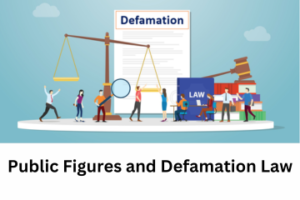Juvenile Delinquency in India: An Overview
Written by Shan Sharika Yaseen
The following two quotations by Edward H. Strullken in his article “Misconception about Juvenile Delinquency” may be reproduced here in order to understand the continuing nature of the problem. An Egyptian priest almost 6000 years ago wrote on the walls of a tomb: Our earth is degenerate in these latter days. There are signs that the world is coming to an end because children no longer obey their parents.
Socrates wrote a paragraph over 2400 years ago that might well have appeared in a morning paper of
today: Children now love luxury, they have bad manners, contempt for authority, and show disrespect for
elders, and love chatter in place of exercise. Children no longer rise when elders enter the room. They
contradict their parents, chatter before company, gobble up dainties at the table, cross their legs and
tyrannise over their teachers.
Concept Of Juvenile Delinquency
The term ‘ delinquency’ has been derived from the Latin word delinquer which means “to omit”. It was
William Coxson in 1484 used the term ‘delinquent’ to describe a person found guilty of customary
offence. Violation of law by a child is called Juvenile Delinquency. Delinquency is an antisocial and
criminal behaviour committed by a person who is under the age of 18 years. When a person reaches
adulthood, Antisocial and criminal behaviour done by him can be said as a crime. Thus we can say that
Juvenile Delinquency is the child and adolescent version of the crime.
Juvenile Delinquency Shows Two General Types Of Behaviours:-
- Status Offence:– Status Offence is a legal term used in Juvenile Justice to describe certain actions that are only illegal if committed by a younger person, minors may be subjected to arrest, detention and other penalties. Status offences are not considered to be good for children and adolescents. Because of the age of the offender, these behaviours are prescribed. If these offences are committed by adults, behaviours are not illegal. Drinking or possessing alcohol, consuming tobacco, running away from home, truancy or not attending school without any good reason and violating curfew are examples of status offences.
- Delinquent Offences:- Delinquent Offences are committed by all persons of all ages and genders Violate the legal statutes and also apply to adults in the Criminal Justice System. Acts of violence are included under delinquent offences such as murder, rape, assault, child abuse, and harassment. The most common examples of delinquent offences in Juvenile court include shoplifting, theft, unlicensed driving, uninsured driving, assault fraud, drug possession and trespassing, harassment, stalking etc. Juvenile Delinquency In India
Juvenile Justice Act 1960 was operative throughout the country later on it got primary enactment in 1986 by the Parliament to provide care, protection, treatment, development rehabilitation etc . Later on in India Juvenile Justice Act 2000 was enacted. It came into being as the primary legal framework for Juvenile Justice in India. This was amended in 2006 /2010. Later on in the wake of the Delhi Gang Rape case 2012 this law suffered a nationwide criticism owing to helplessness against crime where juveniles get involved in heinous crimes like rape and murder but cannot be tried. The Juvenile Justice Bill 2014 was passed by parliament and it became Juvenile Justice Act 2015 and came into force in 2016. Its aim is that the Juveniles in conflict with the law, involved in heinous offences can be tried as adults. Juvenile here refers to those adolescents who have not yet achieved the age of majority or fall within the age group of 16-18 year.
Effects Of Delinquency:-
1 . Not only affects victims of the delinquents but also affects themselves.
2 . Lost their freedom as they might be placed on probation.
3 . Affect Academic welfare.
4 . Effect or create instability and insecurity for others.
Prevention:-
1 . Strong emotional bonding in the family.
2 . Curb the development of delinquent behaviour.
3 . Productive Social Activities.
4 . Teachers , Parents , Close associates , play a good role .
Causes Of Juvenile Delinquency:-
1 . Family Disintegration:- Family disintegration is one of the most common problem. Nowadays
relationships are not the same as it was before indifferences, neglect and slackness have become
common. Neither father nor mother is concerned with maintaining good family relationships this is the
reason why children lack interest in studies, communicate with friends and get involved in other
activities this leads to family disintegration resulting in the formation of a weak society. The following are the
main causes of family disintegration:-
1 . Absence of father and mother and their negligence in performing family duties.
2 . The competition with each other.
3 . The addiction of using modern means of communication.
4 . The financial condition of the family.
5 . Divorce, problems and other disputes.
Family disintegration is one of the major factors that cause child Delinquency which leads children
towards anxiety.
2 . Poverty:- Poverty produces violent crimes. The reason for the association of poverty with crime is
that it gives the opportunity to the poor to acquire things that they cannot afford. Because both
parents prefer to do jobs outside the home to earn money for fulfilling their basic needs and other
necessities and no one remains to look after the children. Such children may join gangsters or become
engaged in activities which lead to Juvenile Delinquency.
3 . Technology Revolution And Violence Amongst Children:- Nowadays most students are much
influenced by social media. Students are spending too much time on social media and less with their
families which is affecting the minds of children and leading them towards Delinquency. Aspects of
technology leading to Delinquency are as follows: –
1 . Access to electronic gadgets.
2 . Pornography (Sexual Intimation).
3 . Social media (Facebook , WhatsApp, Insta etc.)
4 . Access to technology.
5 . Cyber Juvenile Delinquencies.
Measures Related To Juvenile Justice:-
1 . The government must establish courts for special children dealing with cases related to Juvenile
Delinquency.
2 . Measures must be taken to improve Juvenile Homes, Rehabilitation Centers through regular
inspections by providing adequate funds and giving training to staff.
3 . Child guidance clinics should be established to provide appropriate treatment to disturbed children.
4 . Efforts should be made to educate families to make them understand to realize the importance of
giving attention to their children.
5 . Slum areas, busy markets, and gambling centres should be improved.
6 . Proper assistance must be given to underprivileged children.
Keywords: Juvenile Delinquency in India: An Overview, Juvenile Delinquency




